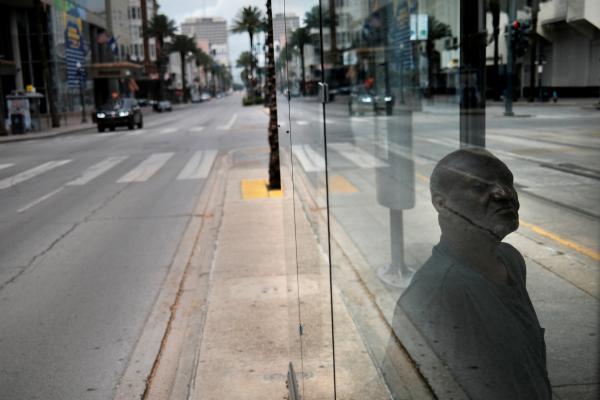As the coronavirus-induced national emergency stretches into its second month, uncertainty looms over the United States.
But in this era of unknowns, there are some somber certainties. Among them is the fact that African-American communities across the country will be among the hardest hit by this deadly disease. Evidence of this reality is readily available, despite the Center for Disease Control and Prevention not knowing the race of more than 315,000 people who have tested positive for the virus.
In Chicago, African Americans account for 49 percent of the city’s total cases and 64 percent of its deaths, despite making up just 30 percent of the population, according to data from the Chicago Department of Public Health. In Louisiana, according to data from the state’s Department of Health, African Americans account for 59 percent of the state’s COVID-19 deaths, despite making up only 33 percent of the state’s population.
Health disparities are “systematic differences in the health status of different population groups,” according to the World Health Organization. And experts say it’s especially important to consider the social determinants of health during the COVID-19 pandemic.
According to data from the Kaiser Family Foundation, 22 percent of African Americans live in poverty. Many African Americans work low-wage jobs in the food and hospitality industries that don’t allow them to work from home. As a result, many African Americans are on the front lines of the pandemic in order to keep their paychecks, experts said.
Virginia Caine, a physician and director of the Marion County Public Health Department in Indiana, said raising the minimum wage is one way to help address disparities in health outcomes.
“People can help themselves if they can get a decent wage,” Caine said during a recent panel discussion hosted by the think tank New America and The Indianapolis Recorder. “That $7.25 per hour that’s been there for 30 years, my God, we can do better.”
Antoniette Holt, director of the Office of Minority Health for the Indiana Department of Health, pointed to lack of reliable transportation as a challenge faced by some in African-American communities across the country, making it difficult for people to be on time for doctor’s appointments that are often unforgiving when it comes to tardiness. This point is especially important during the pandemic, as social distancing practices are nearly impossible to maintain on public transit.
Carl Ellison, president and CEO of Indiana Minority Health Coalition, said efforts to address health inequities need to be rooted in data.
“You can't really address health inequities if you don’t understand them,” Ellison said. “You can't really have a strategic way of approaching it if you don't have data.”
Holt agreed on the urgent need for data on health issues of minority communities.
“It's important, imperative that we are collecting racial/ethnic data so we can understand the populations that we need to serve, especially those who are most vulnerable,” Holt said.
Caine said another needed change is in the behavior of health care professionals to address inequities. For her, change starts by improving education for health care professionals.
“It's going to take more than a patient talking to the physician to change their attitude,” Caine said. “A lot of [medical professionals] may have unintended biases ... that they're not even aware of. So they need training, and we need to hold them accountable.”
Caine added that all hospitals and learning institutions should train health care professionals to understand unconscious bias and provide better care for people of color.
These race-based disparities may come as a surprise to some, but they are not new to the United States.
In 1906, W. E. B. Du Bois made several observations based on the 1900 census. The sociologist wrote, the death rate among African Americans is “undoubtedly considerably higher than the white,” due to the high mortality rate among African Americans from diseases like tuberculosis, pneumonia, and heart disease.
Vanessa Northington Gamble, a physician and American medical historian, wrote in 2010 about when the Spanish Flu pandemic struck the world, saying, “African Americans were already beset by a host of major public health, medical, and social problems that shaped how they experienced the epidemic and how the epidemic affected them. Although the epidemic probably had a less devastating impact on African American communities, it still overwhelmed their medical and public health resources.”
Now, amid the coronavirus outbreak, hospitals from Wisconsin to Maryland that serve African American communities are being inundated with COVID-19 patients. Despite a century of public health lessons, it seems communities of color will pay the price for this pandemic.
Got something to say about what you're reading? We value your feedback!






